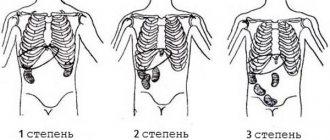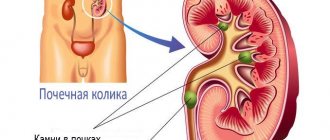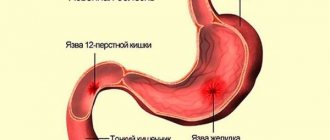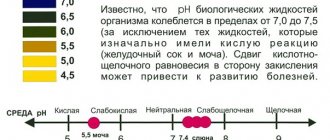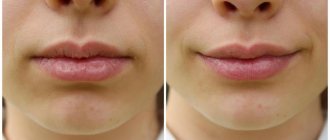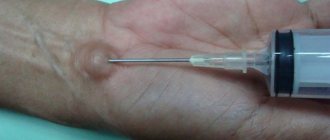Psychosis is a pathological process accompanied by a disturbance of the state of mind and a characteristic disorder of mental activity. The patient has a distortion of the real world, his memory, perception and thinking are impaired.
Online consultation on the disease “Psychosis”. Ask a question to the experts for free: Psychotherapist.
- Causes
- Manifestations
- Types of psychoses
- Postpartum
- Mass
- Paranoid
- Senile
- Alcoholic
- Reactive
- Spicy
- Schizoaffective
- Therapy
Causes of psychosis
There can be many reasons for the disorder. This condition can be triggered by the use of alcohol, amphetamines, cocaine and other psychoactive substances. Long-term use of antidepressants can also lead to this disorder. Withdrawal of certain medications (when a person stops taking a medication they are used to) can have the same result.
The diagnosis of psychosis can be made not only for the above reasons. There are a number of social factors that create favorable conditions for this disorder. Poverty comes first. It has been proven that psychosis is more common in people whose financial situation is low.
The second factor is violence. The disorder may be triggered by physical abuse, including sexual abuse, experienced in childhood or later in life. Violence can be more than just physical. The disorder can arise as a result of emotional abuse (bullying, boycotting, isolation, etc.).
Another reason that is common in children is hospitalization. A child may have a hard time being away from home and being in unfamiliar conditions. Hospital treatment can be perceived as violence.
In addition, psychosis can be triggered by repeated trauma. If a child has experienced violence as a child and experiences it again as an adult, this may become the basis of a mental disorder.
Briefly about the disease
For the most part, psychoses are endogenous, that is, the causes of their occurrence are internal. Due to heredity, schizophrenia, diseases of an affective nature (depressive disorders), and schizoaffective psychosis can occur. Such diseases are the most severe and protracted. It seems to us that the identification of psychosis and schizophrenia is not entirely correct, since the former can be observed in a large number of mental illnesses, such as epilepsy, Alzheimer's disease, alcoholism, dementia, mental retardation, etc.
A transient psychotic state can be provoked by taking medications or drugs, or it can be a psychogenic (reactive) psychosis, which is caused by severe mental trauma or shock (death of a relative or friend, threat to life). Science also knows other types and causes of psychosis: the so-called infectious (a consequence of an infectious disease), somatogenic (the cause is severe somatic damage to organs), intoxication (for example, an alcoholic mental disorder called delirium tremens).
Psychoses are very common disorders of consciousness. Thus, endogenous psychoses are diagnosed in approximately 5% of the population. But since different countries have adopted different approaches to defining such diseases, which are often very difficult to diagnose, statistical data differ.
We also do not have accurate data on how many people suffer from exogenous psychotic disorders (those of external origin). This is understandable: most of these pathologies occur in drug addicts and alcoholics. The manifestations of psychosis reflect the boundless richness and versatility of the human psyche. Therefore, we can indicate only the most common manifestations:
- Hallucinations. First of all, they are divided into auditory, optical, olfactory, gustatory and tactile - depending on the analyzer. Hallucinations are also divided into simple (noise, calling) and complex (speech). Most often, these are voices heard by a person and emanating either from the outside world or from the patient’s head. They are so natural that the patient has no doubt about their reality. The following danger is associated with this. Because they can threaten, accuse, or command, a person perceives them either as a call to action (the patient, by obeying, may harm himself or those around him) or as an emotional assessment, which can aggravate a mental disorder.
- Crazy ideas. These are thoughts and conclusions that do not correspond to the state of things in the real world. They completely take over a person’s consciousness, and there is no way to convince him, explain the situation, or correct this condition. Such ideas are varied, but most often they are like this:
- delusion of persecution - the patient believes that he is being watched in order to harm him in one way or another: to kill, defame, involve him in an adventure or conspiracy;
- delusion of influence - the patient believes that he is influenced by psychics, aliens, radiation from intelligence equipment, radiation, black magic, witchcraft, induced damage;
- delusion of damage - the patient thinks that they are trying to poison him, that things are being stolen from him, that they are being taken out of the house;
- hypochondriacal delusion - the patient diagnoses himself with a very serious illness, often fatal, and does not believe the doctors who convince him that he is completely healthy.
In addition, delusions of jealousy, uniqueness, invention, foreignness, greatness, love, reformation and others are described.
- Movement disorders. In this case, the patient is either inhibited (in a stupor) or too excited. In the first case, he moves little, often freezes in some position, does not eat, and his gaze is riveted to one point. If the patient is subject to psychomotor agitation, he continuously talks, moves, makes grimaces, teases people; in his actions he is subject to impulse and momentary desires, and then cannot explain his actions.
- Mood disorders, the manifestations of which are depressive and manic states. In case of depression, the patient’s mood worsens, a melancholy feeling occurs, depression occurs, movements are inhibited, intellectual activity decreases, the desire to do anything disappears, the person is consumed by pessimism, and suicidal thoughts appear. If a person is in a manic state, then the mood is unmotivatedly high, muscle activity increases, mental activity accelerates, inflated self-esteem appears, unrealistic, even fantastic plans appear, the need for sleep disappears, but all desires are disinhibited, and the patient may begin to abuse alcohol or drugs , have sexual relations with many partners.
These are so-called positive disorders, which got their name due to the fact that these symptoms seem to be added to the mental state of the patient, as it was before the illness. Often, even after the symptoms of psychosis have completely disappeared, the patient begins to experience disorders called negative ones - in many cases they cause very serious social consequences than the psychotic state itself. Such disorders received such a definition due to the fact that a person’s character, basic personality traits, and huge layers simply disappear from the psyche. Such people lose initiative and are lethargic and passive in most life situations.
It is often noted that the energy tone is significantly reduced, desires and the desire to perform any actions disappear, emotional dullness increases, the person seems to be fenced off from society, breaking off all contacts with other people. Often the former responsiveness, tactfulness, and sincerity are replaced by previously uncharacteristic anger, rudeness, and an unwillingness to coexist peacefully with loved ones. Thinking also undergoes serious changes: it becomes amorphous and loses its content. Such conditions in many cases lead to loss of ability to work and, consequently, to disability.
Types of psychoses
There are different classifications of this disease. From the point of view of the causes of psychosis, they are divided into endogenous and exogenous. Endogenous in Latin means “generated by internal factors, intraborn.” The causes of such disorders are associated with metabolic disorders in the brain. This type includes bipolar personality disorder and depressive psychosis.
The next type is exogenous. Translated from Latin it means “generated by external factors.” A striking example is psychosis caused by taking psychoactive drugs (drugs, alcohol). In addition to psychoactive drugs, external factors include psychosocial causes: stressful situations, depression, violence, severe emotional experiences.
In addition, there are organic psychoses. They occur against the background or as a consequence of somatic diseases, for example, after a heart attack, infectious and other diseases.
What to do if one of your relatives is sick?
Naturally, the family’s first reaction to such a misfortune is confusion and fear, refusal to believe the facts. Then people start looking for someone who can help. And at that time, many make the mistake of turning not to psychiatrists, but either to doctors of another specialization, or to healers, homeopaths, psychics, and herbalists. This happens because society has a deeply rooted myth about doctors who practically conduct experiments on patients. Even a consultation with a psychiatrist raises concerns - according to people, troubles follow: restriction of legal capacity, registration, impossibility of traveling abroad, deprivation of a driver's license, loss of prestige. In addition, many are convinced that the disease is caused by somatic, often neurological, causes, that such ailments cannot be cured by modern medical science. We should not forget that some patients and their relatives do not understand the severity of the situation, which leads to refusal of treatment. For the most part, such fears are unfounded. Only an appointment with a psychiatrist and the special treatment prescribed by him give a real chance of healing or significant improvement in the condition. More than ten years ago, registration with the psychoneurological dispensary was canceled.
There is consultative and therapeutic assistance and dispensary observation. This is a real help for patients who suffer from mild or short-term mental disorders. They are treated in the case when they voluntarily and independently came to the doctor, asked to prescribe treatment and agreed to take it. Minor patients under 15 years of age are treated with the consent or at the request of their parents or guardians. The dispensary observation population includes patients who have been diagnosed with severe, persistent or worsening mental disorders.
Clinical observation can be established in accordance with the decision of a medical commission of psychiatrists and does not depend on the consent of the person susceptible to mental disorders. Such observation involves regular examinations of the patient by specialists working in psychoneurological dispensaries. This form of monitoring a person’s condition can be canceled in the case when the patient is either completely healed or there is a noticeable, lasting improvement in his condition. In most cases, dispensary observation is terminated if the patient has not had any exacerbations of the disease for five years. The important point is that as soon as the first signs of mental disorders are noticed, frightened family members paint a terrible picture - their loved one has schizophrenia. However, they do not know that psychosis can be caused by other factors. Thus, you should not try to make a diagnosis yourself - each patient should be carefully examined by specialists in the field of psychiatry.
Often, timely consultation with a doctor can prevent very serious consequences, since the doctor can identify psychotic conditions caused by tumors in the brain, stroke or other somatic causes. A correct diagnosis can only be made by a highly qualified specialist who uses both traditional and innovative diagnostic methods. Naturally, people practicing alternative medicine do not have the necessary equipment or experience in identifying and treating mental illnesses. Accordingly, refusal of drug treatment in favor of dubious methods often causes consequences that can no longer be corrected even by qualified doctors.
When a patient refuses a timely visit to a doctor, and relatives do not show due attention and persistence, the patient does not receive timely consultation with a psychiatrist. As a result, he may end up in a psychoneurological dispensary in a state of either acute psychosis or at an advanced stage of mental illness. The time that was necessary to treat the disease at an early stage has been lost, and the disease has either become chronic or is in a form that is difficult to treat. If a person suffers from psychotic disorders and wants to receive qualified medical care, this is possible in a psychoneurological dispensary in his city, in research institutes specializing in relevant diseases, or in departments of psychotherapeutic or psychiatric care, which are in district and city clinics, from psychiatrists working in departmental clinics.
Stages of psychosis
The stages of psychosis are called phases. There are 4 main phases: prodromal (initial), untreated psychosis, acute and residual. How long each phase lasts depends on the individual characteristics and predispositions of the person. However, it should be remembered that this disease is long-term. Taking into account all phases (not only acute), its course is measured in years or even decades.
The prodromal phase is characterized by the appearance of mild symptoms at first, which then become more and more pronounced. By the end of the stage they become completely identifiable. At this stage, the most striking manifestations may occur - hallucinations and delusions. The duration of the phase varies from 2 to 5 years.
The untreated phase of psychosis begins when symptoms persist and ends when treatment begins.
In the acute phase, a person may not understand what is happening to him and may not realize that he is sick. At this stage, symptoms appear most clearly. This is delirium, hallucinations, fragmented thinking.
After the completed course of treatment, the residual phase begins (from the English residue - residue). This stage is characterized by residual symptoms. The residual phase extends for an indefinite period. It can last until the end of the patient's life.
At the same time, symptoms suppressed by drug treatment may worsen after some time. The period of exacerbation may occur again. The possibility of relapse is the specificity of the residual phase.
Course and prognosis of psychotic states
In most cases, especially with regard to endogenous diseases, a type of psychosis is diagnosed, which is called periodic. With it, at certain intervals, a person suffers from acute attacks of illness, caused by physical or psychological trauma or appearing unmotivated. The medical literature also describes a single-attack course of psychosis, which is more typical for young patients. Such people, after suffering one, but often very long attack, are cured after some time and never need the help of a psychiatrist.
But the course of the disease can also be chronic—symptoms appear throughout the patient’s life. If the case is not advanced and not complicated, the patient leaves the hospital after 6-8 weeks. During this time, doctors achieve complete disappearance of symptoms of psychosis and establish adequate supportive treatment. But if the manifestations of the disease are resistant to drugs, several courses of therapy are needed and, therefore, a stay in a hospital for six months or more. The patient’s family should not ask doctors to quickly discharge the patient - if the illness remains untreated, this poses a danger to both the person himself and his environment. Doctors believe that perhaps the most important factor in improving the prognosis of psychosis is the timeliness and intensity of active treatment, combined with measures aimed at social rehabilitation.
Signs of psychosis
Psychosis can be recognized at the initial stage of development. To do this, it is necessary to carefully analyze the precursors of the disease. These are subtle manifestations of symptoms that are often confused with signs of puberty, attributed to bad character or unsociability.
Precursors include: anxiety, irritability, sensitivity, anger. The disease leaves its mark on a person’s thinking: there are problems with memory and building logical connections. Symptoms also manifest themselves in appearance. Such a person can be called neglected, unkempt. A clear sign is a sleep disorder, which is expressed in drowsiness or, conversely, insomnia. The person may lose appetite and become lethargic.
Manifestations of psychosis in women
A feature of the female form is the rapid progression of the disease and acute symptoms. Mild manifestations of the disorder are mood swings, which are often attributed to hormonal changes associated with childbirth or menopause.
The cause of the disease may be schizophrenia, disorders of the thyroid gland, pregnancy, childbirth, menopause, and damage to the nervous system. The disease can develop against the background of postpartum depression. External causes include: alcohol consumption, stress, depression.
A woman in a state of psychosis behaves excitedly, anxiously or, conversely, is in a state of euphoria. Such states alternate. They are often accompanied by thoughts out loud (the patient talks to herself or to imaginary interlocutors). At the same time, speech is characterized by incoherence and confusion of thoughts. A person may experience visual and auditory hallucinations, which are often described as the presence of a voice that can give orders and direct the person’s actions.
At the same time, all patients are characterized by a lack of understanding of their condition.
Symptoms of psychosis in men
The specificity of the disease in men is that aggression is added to female symptoms. It is also typical for women, but to a lesser extent.
Psychoactive substances affect men less than women and are less likely to cause psychosis. This is due to the fact that a man’s body weight is on average greater than a woman’s body weight. Therefore, the toxic effect of alcohol in the case of men is not as dangerous as in the case of women.
In addition, when drinking alcohol, the adrenal glands begin to produce male hormones. For men, this poses no danger other than sexual arousal. In the case of a woman, this leads to irreversible hormonal changes.
Therefore, more often the cause of the disease in men is not alcohol, but social factors: problems with employment, low social status, the need to compete and compete with colleagues and business partners. This social pressure creates a feeling of hopelessness.
All this leads to irritability, gloomy and withdrawn behavior, apathy, and depression. These symptoms often develop into a form of aggression.
What treatment does psychiatry offer?
The cause of delirium is a sudden cessation of alcohol consumption. Patients exhibit dangerous symptoms and treatment must be prompt. The patient poses a threat to others. How to alleviate the condition?
This can only be done in specialized institutions - a psychiatric clinic or dispensary. Here's why it's important:
- the patient does not independently realize the severity of the pathology;
- a doctor can control the intake of sedatives;
- the situation will be calm, which will not provoke;
- specialists will monitor the dynamics of the disease.
With hallucinosis the situation is different. The patient is in a state of altered consciousness: he may fall into delirium, obsessive thoughts disturb him more often, which predisposes him to the development of other pathological conditions (mania, panic).
States of continuous hallucination
Treatment is carried out in a hospital with the help of psychotropic drugs with antipsychotic effects.
During the development of alcoholic psychosis, an additional symptom appears - deterioration of short-term memory. In the initial stages, the problem can be corrected by abstaining from alcohol. Later, hospitalization with the prescription of special medications will be required.
Treatment is aimed at solving the following problems:
- relief of excitement;
- restoration of metabolic processes in the body;
- normalization of breathing and cardiac activity;
- prevention of the development of liver and kidney pathologies;
- reducing the effects of alcohol on the brain.
Treatment of psychosis
You can find out from a specialist how to get rid of psychosis. You should not engage in self-diagnosis and self-medication. The disease is associated with disturbances in the functioning of the brain, so for an accurate diagnosis it is necessary to do a CT or MRI. However, an experienced psychiatrist can determine the presence of a problem using tests that will show a lack of connection with reality, illogical thinking and other mental disorders.
Patients are prescribed antidepressants and tranquilizers (sedatives). Such drugs work better in combination with physiotherapeutic procedures, physical therapy, which has a restorative effect and helps the patient relax and unwind.
Cognitive therapy or psychoanalysis demonstrates high effectiveness in treating the disease. With its help, the doctor determines the cause of the disorder and adjusts the composition of drug treatment.
Manifestations
The following are signs of psychosis:
- sudden change in activity at work;
- increased stress;
- attention disorder;
- feeling of fear;
- mood swings;
- depression;
- mistrust;
- stopping contact with people;
- shows interest in things like magic or religion.
As a rule, this disease has a paroxysmal course. Therefore, there are stages of psychosis that are characterized by seasonality and spontaneity. The latter arise in the case of the influence of psycho-episode trends that predominate at a young age. Such an attack is characterized by duration and gradual release.
Prevention of psychosis
Treatment of psychosis at home is impossible. However, there are a number of recommendations that will help you choose the right line of communication with loved ones suffering from this disorder.
It is necessary to listen to the patient, no matter how crazy his thoughts may seem, but you should not enter into dialogue and try to defend your point of view. You should agree with the patient on everything. This is due to the fact that such a person may not understand what he is saying. During an exacerbation, the dispute can provoke the patient to aggressive actions. In such situations, it is necessary to call an ambulance.
It should be remembered that psychosis is divided into manic and depressive. In the first case, antidepressants are contraindicated. Therefore, you should not choose treatment on your own. If symptoms are detected, you should immediately consult a doctor.
Bipolar disorder
A mood disorder characterized by sudden mood swings. The condition of people with this disease usually changes sharply from maximum excitement (mania and hypomania) to minimum (depression).
Any episode of bipolar disorder may be characterized as an “acute psychotic disorder,” but not vice versa.
Some psychotic symptoms may only subside during the onset of mania or depression. For example, during a manic episode, a person may experience grandiose feelings and believe that they have incredible abilities (for example, the ability to always win any lottery).
Diagnostic measures
Identification of acute or chronic reactive psychosis is based on collecting anamnesis and identifying characteristic clinical manifestations. During a conversation with the patient, a recent psychotraumatic situation is discovered, after which the first symptoms appeared.
It is important for doctors to carry out differential diagnosis with other psychiatric pathologies: alcohol or drug intoxication, withdrawal syndrome, depression, schizophrenia and delusional disorders. To exclude organic disorders, computer or magnetic resonance imaging of the brain is performed.
Affect
One of the manifestations of acute psychosis is an affective state. Probably everyone knows it. This is that short, sharp period of time when a person does not understand what he is doing. Affect occurs, as a rule, in emergency situations that threaten life (natural disasters, fire, and so on). It can occur in excited and inhibited forms. In the first case, the patient begins to make sudden, panicky movements, rushes from side to side, asks for help and runs somewhere (usually towards danger). When acute psychosis stops, patients either do not remember what is happening, or cloudy particles of memories remain in the head.
During an inhibited reaction, as you might guess, the patient experiences partial or complete immobilization (or, more simply put, stupor). During this period, the power of speech is lost, one of two pictures freezes on the face: indifference to everything or horror. This condition can last from several minutes to several hours.
Neuroleptic drugs as part of the treatment system for psychotic disorders
Neuroleptics (antipsychotics) are considered the most important drugs that cure psychosis. In the 1090s, atypical antipsychotics were invented - a group of drugs that exert selective neurochemical effects. This was a real breakthrough in the treatment of psychosis, since it is now possible to influence only individual nerve receptors. These medications are both much more effective and much better tolerated. Such substances have almost no extrapyramidal side effects.
The most prescribed and included in the “List of Essential Life-Saving Medicines” are Leponex (azaleptin) and Rispolept (risperidone). Zyprex and Seroquel are also used. The first two of these drugs have shown to be very effective in the treatment of many psychotic conditions. In this case, practicing doctors prescribe rispolept first, and leponex is used in cases where previously prescribed treatment did not bring the desired results. This is due to certain features of azaleptin, specific side effects and complications. Their identification and correction involve regular general blood tests of the patient.
Features of the disease in children
Reactive psychosis has a number of age-related characteristics due to insufficient maturity of the nervous system. These include:
- High incidence of movement disorders in the form of stupor. Children often freeze in place and do not react to others. After stupor, motor or speech excitation may develop.
- The predominance of the affect of melancholy, tearfulness and unfounded resentment towards loved ones or the doctor.
- With childhood reactive psychoses, the child’s aggression, rude pranks and statements are often observed.
The disease in childhood progresses favorably. With timely treatment, symptoms quickly disappear without a tendency to relapse.
general information
All types of reactive psychoses are acute mental disorders that arise against the background of a severe stressful situation. They are manifested by disturbances in perception of the surrounding reality and inappropriate behavior. It is believed that this condition is reversible and temporary. When talking with the patient or his loved ones, they always discover a traumatic situation that became the immediate cause.
With timely elimination of the traumatic factor, mental health quickly returns to normal. If the stressful situation persists, then the development of protracted reactive psychosis is possible, requiring hospitalization of the patient and complex pharmacotherapy. The disease should be treated by a psychiatrist. Independent attempts are unacceptable, since the pathology can progress quickly and lead to serious consequences.
What does a psychotic diagnosis mean?
Contrary to numerous prejudices that a person with a mental disorder is either a weak-willed hysteric or a potential maniac, statistics show that aggressive behavior is more often observed among healthy people than among patients in psychoneurological institutions. Therefore, you should not panic, much less isolate yourself from society, if your family is faced with such a diagnosis. It is important to realize that delay in contacting a psychiatrist can lead to irreparable consequences, including disability.
The appearance of psychotic symptoms does not always indicate schizophrenia or other severe endogenous disease. Psychosis can be of somatogenic, psychogenic, intoxicating or organic nature. There is a huge list of diseases and pathologies that can cause psychotic symptoms. Therefore, timely seeking medical help and conducting diagnostics to determine the cause of psychosis can reduce the likelihood of complications and improve the prognosis of the course of the disorder. If you are diagnosed with psychosis, you should be prepared for fairly long-term therapy and strict adherence to the doctor’s instructions.
Psychotherapy and social rehabilitation
Of course, there is no way to cure a psychotic disorder without medication, but the recovery process is a multifaceted procedure. In addition to pills, each patient needs psychotherapeutic support and assistance in social rehabilitation. Recovery from psychosis can be difficult and lengthy. If symptoms such as hallucinations, delusions, and depression cannot be relieved quickly enough, the patient after psychosis may become passive, lethargic, and lose the ability to concentrate and perform previous skills. Sometimes, after psychosis, a person cannot do even the simplest things on his own: take care of himself, organize meals, clean the house, etc. Rehabilitation programs specially designed for each individual patient help to return to normal life. Psychotherapy helps to get rid of feelings of inferiority associated with a mental disorder. Psychotherapeutic techniques teach a person to solve everyday problems, and group therapy makes it easier to cope with returning to social life. And although it is not possible today to completely replace pills with psychotherapeutic or other methods, all auxiliary means can increase the effectiveness of medications and facilitate recovery from psychosis.
Nature of the pathology
First, let's look at how this mental disorder manifests itself. The term “psychosis” is used to designate a special mental state in which a person loses the ability to adequately perceive the world around him. Occurring events are perceived by the “affected” consciousness in a distorted form.
Against the background of problems associated with perception, a person loses the ability to control his behavior.
Often the development of psychosis is accompanied by a change in thinking and problems with the perception of reality. To the above symptoms you can add memory loss and bouts of hallucinations.

